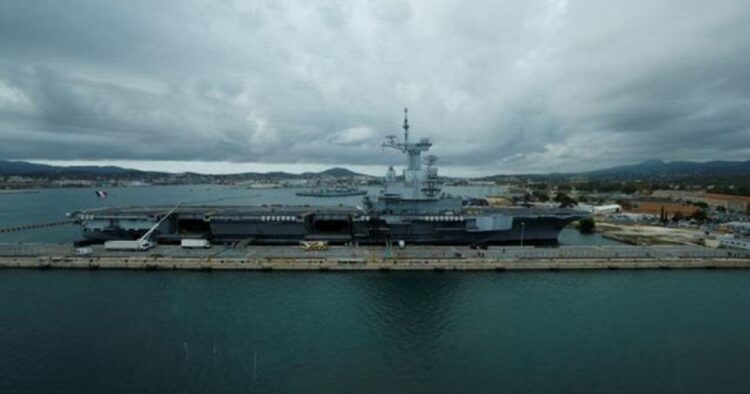NATO has kicked off one of its largest naval missions since Russia’s invasion of Ukraine, with the French aircraft carrier Charles de Gaulle leading the charge under NATO’s command for the first time. This deployment, dubbed Neptune Strike, aims to enhance coordination among NATO members and serve as a deterrent to potential adversaries.
The Charles de Gaulle, a nuclear-powered carrier, set sail from its home port in Toulon, France, marking a significant moment as it operates under NATO’s operational control for the first time. The decision underscores France’s renewed commitment to the alliance following increased security concerns sparked by Russia’s actions in Ukraine.
The move to place the Charles de Gaulle under NATO command has sparked criticism from both ends of the political spectrum in France. While some argue it represents a loss of sovereignty, French officials defend it as a necessary step for effective multinational cooperation within NATO.
Rear Admiral Jacques Mallard, commander of the strike group, emphasized the importance of maintaining a strong chain of command and fostering closer ties with NATO allies, particularly amidst growing tensions with Russia.
The deployment involves approximately 20 vessels, including carrier strike groups from Italy, Spain, and Turkey.
Neptune Strike, described by NATO as “enhanced vigilance activity,” is part of ongoing efforts to bolster allied capabilities and cohesion. U.S. Vice Admiral Thomas Ishee, NATO’s Striking and Support Forces commander, highlighted the exercise’s role in demonstrating the alliance’s readiness and deterring potential adversaries.
While NATO insists the mission is not explicitly directed at Russia, Moscow remains identified as the primary security threat in NATO’s strategic framework. Russian President Vladimir Putin’s assurances of non-aggression have been met with skepticism by NATO members, given his prior actions in Ukraine.
Amidst escalating tensions, NATO emphasizes its commitment to deterring Russian aggression while maintaining open lines of communication. The Neptune Strike mission serves as a visible demonstration of NATO’s resolve to defend its members and uphold regional stability in the face of evolving security challenges.

















Comments